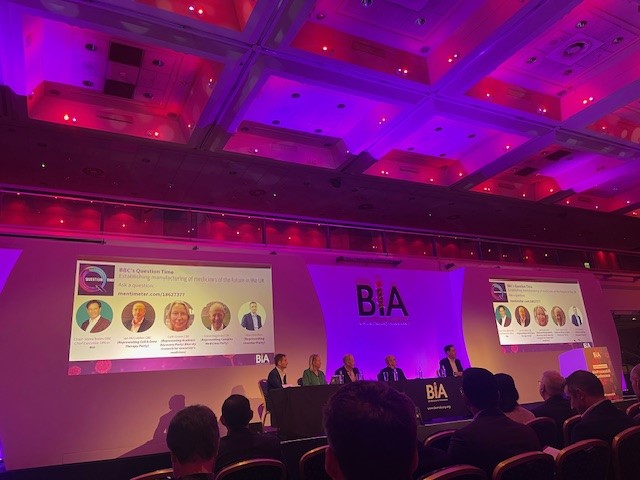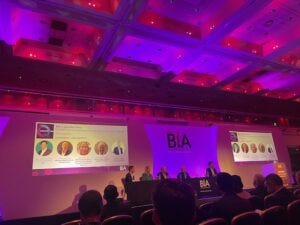Content Spotlight
Podcast: MilliporeSigma says education vital to creating unbreakable chain for sustainability
MilliporeSigma discusses the importance of people, education, and the benefits of embracing discomfort to bolster sustainability efforts.

Experts at BIA’s bioProcess UK conference in Brighton discussed whether the challenges surrounding advanced therapies are the same as those traditional modality companies faced.
The complex nature surrounding advanced therapy medicinal products (ATMPs) is often spoken about at life science events across the world. Discussions include the high manufacturing costs, calls for new innovative payment models, patient access worries due to different healthcare systems, and difficult regulatory pathways to approvals. However at bioProcess UK, a panel debated asked whether the challenges faced now are any different to those faced when dealing with traditional biologics.
Steve Bates, CEO of UK BioIndustry Association (BIA), channelled his inner Fiona Bruce and opened the panel by explaining to the audience it would be in format of popular BBC television program, Question Time.

“Question Time” at BIA’s bioProcess UK conference, 2023. Image c/o Millie Nelson
Each panellist represented a hypothetical political party and answered questions from the audience from their party perspective. A delegate posed the question “does the panel think the issues ATMP companies are facing are different to what traditional modality companies faced?”
Representing the ‘Cell and Gene therapy (CGT) Party,’ Ian McCubbin, chair of RoslinCT and the CGT Catapult, said “there are a huge number of similarities [between] biologics and new modalities. [However], I will repeat that ATMPs are curative, and biologics are not. The issue with CGTs is that they are expensive, which is an object for use. But we have seen dramatic changes in manufacturing technology to bring costs down.”
Steve Bagshaw, chair at High Value Manufacturing Catapult and representative of the ‘Complex Medicines Party,’ cited the patient access issues associated with ATMPs and told the audience “Biologics were giving people hope, whereas ATMPs are giving certain people in a certain area hope.”
As a result of this, it is highly likely the world will “will have a multi-modality approach” as it is likely we “will need biologics and ATMPs.”
McCubbin hit back at Bagshaw about the amount of people ATMPs can treat and cited Vertex and CRISPR Therapeutics’ recent UK approval for the world’s first CRISPR-based gene-edited therapy, Casgevy (exagamglogene autotemcel [exa-cel]).
According to McCubbin, the therapy is likely to treat “hundreds of thousands of patients over the next 10 years.”
From the ‘Investor Party,’ Alex Hamilton (partner at Syncona), spoke about the switch in skillsets from “chemistry to biology.” He said it is “probably easier” now than “back then” but “we still have challenges” and with ATMPs we “have to think how many we can get out of a batch? And how we can ensure that we can do this constantly.”
Cath Green, head of Clinical Biomanufacturing Facility & partner in VaxHub, University of Oxford, represented the ‘Academic Discovery Party’ during this panel and brought up the talent shortage and the realization that the industry now requires people with a digital skillset.
Green kicked her statement off with the statement “clearly some issues will be the same.” However, we now face challenges with skill sets as “we need way more data scientists now.”
To try and address this issue, Green suggested we think “about where the young scientists are to drive this innovation” but added shortage of skills “was also probably faced in biologics.”
You May Also Like